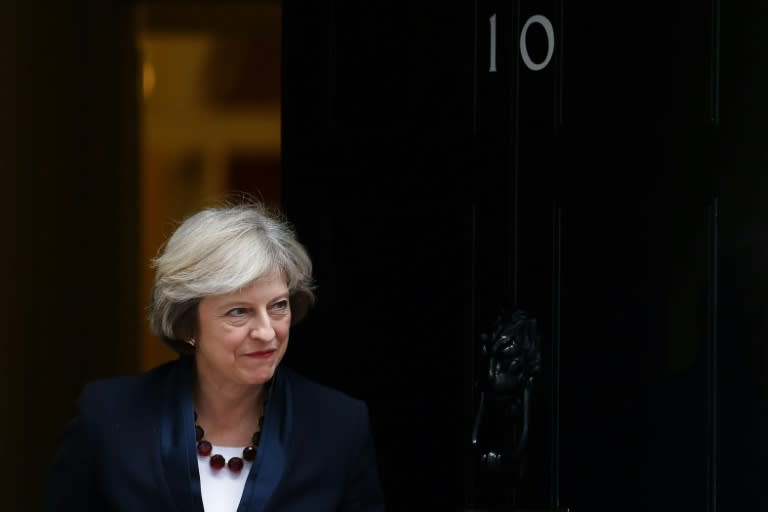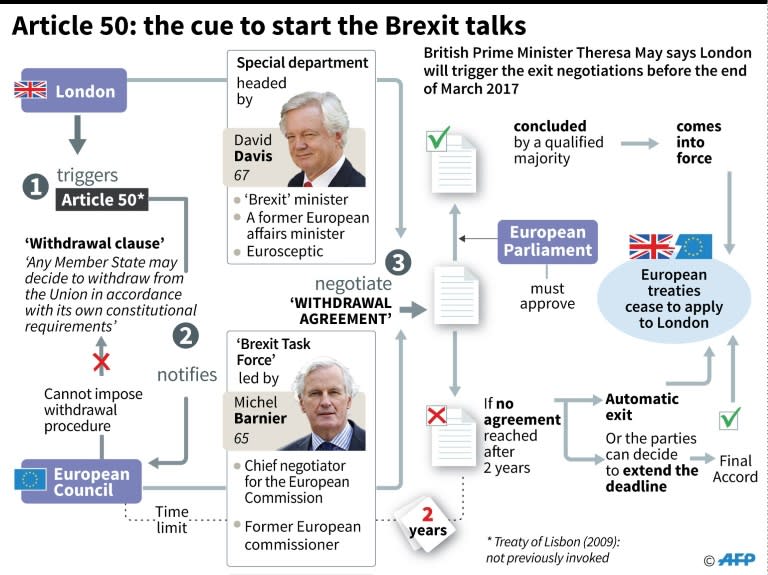British PM allows MPs to scrutinise Brexit plan, rules out vote
British Prime Minister Theresa May signalled Wednesday that she would let parliament scrutinise her Brexit plan before starting the formal EU exit process -- but dismissed calls for a vote on the terms. Her position caused the pound to bounce back after a torrid week, amid speculation that MPs may be able to soften the government's approach to Brexit, which currently seems on course to take Britain out of the European single market. The pound was worth $1.2227 at around 1400 GMT after falling to a 31-year low of $1.1840 last week. May stopped short, however, of agreeing a vote for MPs on her plan before she triggers Article 50 of the European Union's Lisbon Treaty, which formally begins the departure process. Asked in the House of Commons if there would be a vote, May only replied: "The idea that parliament somehow wasn't going to be able to discuss, debate, question issues around (Brexit) was frankly completely wrong." She made it clear that any scrutiny would not change the outcome of Britain's June 23 vote to leave the EU, telling MPs: "The UK will be leaving the European Union. We're not asking ourselves what bits of membership we want to retain." May's comments came ahead of a Commons debate Wednesday on calls by the Labour main opposition for MPs to be allowed "properly to scrutinise" the government's strategy. The prime minister tabled an amendment that effectively accepts the motion. However, it specifies that any parliamentary scrutiny process must respect the vote to leave the EU and should not "undermine the negotiating position of the government". - 'Where is the mandate?' - Labour's Brexit spokesman Keir Starmer described the prime minister's move as a "real victory for parliament". Speaking at the debate in the Commons, he said there was "no mandate" for the terms of Brexit. "It's never been put to the country, it's not even been put to the secretary of state's political party, and it's not been put to this house," he told MPs. "Where is the mandate on these terms?" Brexit minister David Davis said Labour's motion was "broadly welcome" but with "important caveats". Like the prime minister, he batted off questions on whether there would be a vote. "We need to be explicit that while we commend and welcome parliamentary scrutiny it must not be used as a vehicle to undermine the government's negotiating position or thwart the process of exit," he said. Davis dismissed as a "stunt" a move by Labour to pose 170 questions to the government on the detail of the Brexit plan -- one for every day until the end of March, the deadline May has set for triggering Article 50. - High Court challenge - The debate comes ahead of a High Court challenge on Thursday to the government's right to start the Brexit process without a vote in parliament. England's most senior judges will hear arguments brought by lawyers for a number of different claimants, including an investment fund manager, a hairdresser and an expatriate living in France. May has condemned their challenge as an attempt to "subvert" the result of the June referendum when 52 percent of Britons voted to leave the EU.




